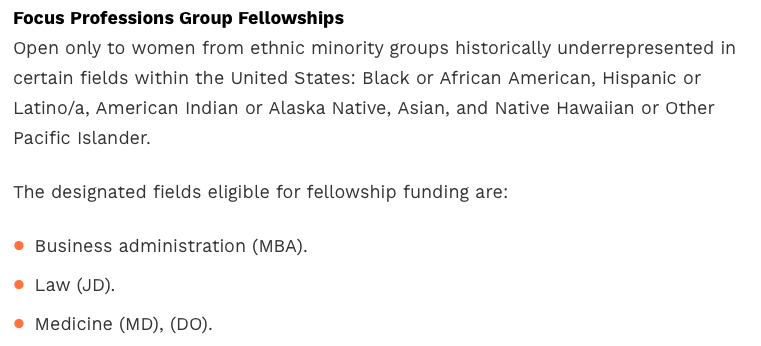
EXCLUSIVE — A top medical fellowship for women will stop excluding white applicants after a complaint accused the program of being racially discriminatory in light of the Supreme Court outlawing affirmative action last year.
Do No Harm, a nonprofit organization that serves as a watchdog in the healthcare industry, filed a lawsuit in June on behalf of female students who met the criteria for the $20,000 award offered by the American Association of University Women but were excluded on the basis of race. Attorneys for both groups wrote in a joint stipulation on Aug. 9 that the lawsuit would be dismissed after AAUW agreed to “not consider” any future applicants’ race or ethnicity.

Both parties agreed to handle their separate legal fees, with AAUW promising to end its discriminatory diversity, equity, and inclusion practices.
“The Fellowship will no longer require applicants to belong to historically underrepresented ethnic minority groups. When choosing recipients for the Fellowship, AAUW will not consider applicants’ race or ethnicity,” both parties agreed in a joint stipulation, according to the court filing.
Stanley Goldfarb, chairman of DNH, lauded the decision, saying it’s “terrific news” that AAUW “no longer offers fellowships on the basis of race.”
“Every patient deserves access to the best possible care, and that begins with medical advancements such as this fellowship that should be awarded to students because of merit, not race,” Goldfarb said.
The lawsuit claimed that AAUW’s program violated the Civil Rights Act of 1866, which requires racial equality when making any contracts.
Additionally, DNH alleged that the exclusionary fellowship ran afoul of the Supreme Court’s precedent in the Students For Fair Admissions v. Harvard case decided last year, which outlawed affirmative action policies for public education programs.
Although the Supreme Court decision was focused on public institutions, it paved the way for scrutinizing similar race-based programs in the workplace. Some businesses have begun to unwind race-based programs and even terminate positions in DEI departments.
CLICK HERE TO READ MORE FROM THE WASHINGTON EXAMINER
DNH recently filed a similar complaint against the Alliance for Regenerative Medicine in July, which offered an internship program that favored only black or African American students.
A spokesperson for the Alliance for Regenerative Medicine previously told the Washington Examiner it aims to administer its internship program “in a manner that is consistent with last year’s U.S. Supreme Court ruling.”






